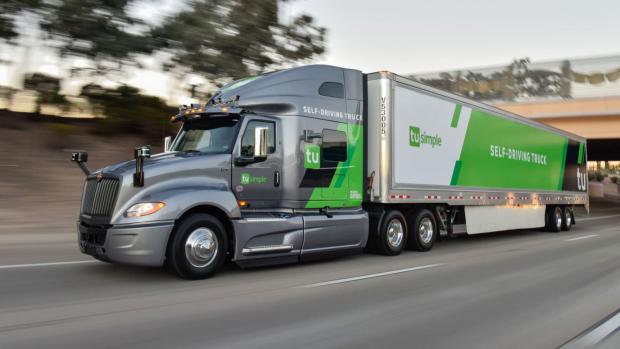
Breaking News
 This GENIUS Trellis Trick Grows MORE Cucumbers with LESS Effort
This GENIUS Trellis Trick Grows MORE Cucumbers with LESS Effort
 MOLD FREE COFFEE?! From Bean to Brew: Unlocking Pure Coffee Bliss with Lore Coffee Roasters
MOLD FREE COFFEE?! From Bean to Brew: Unlocking Pure Coffee Bliss with Lore Coffee Roasters
 Boots on the Ground...15 viewers share the good and bad of the US economy.
Boots on the Ground...15 viewers share the good and bad of the US economy.
Top Tech News
 Hydrogen Gas Blend Will Reduce Power Plant's Emissions by 75% - as it Helps Power 6 States
Hydrogen Gas Blend Will Reduce Power Plant's Emissions by 75% - as it Helps Power 6 States
 The Rise & Fall of Dome Houses: Buckminster Fuller's Geodesic Domes & Dymaxion
The Rise & Fall of Dome Houses: Buckminster Fuller's Geodesic Domes & Dymaxion
 New AI data centers will use the same electricity as 2 million homes
New AI data centers will use the same electricity as 2 million homes
 Is All of This Self-Monitoring Making Us Paranoid?
Is All of This Self-Monitoring Making Us Paranoid?
 Cavorite X7 makes history with first fan-in-wing transition flight
Cavorite X7 makes history with first fan-in-wing transition flight
 Laser-powered fusion experiment more than doubles its power output
Laser-powered fusion experiment more than doubles its power output
 Watch: Jetson's One Aircraft Just Competed in the First eVTOL Race
Watch: Jetson's One Aircraft Just Competed in the First eVTOL Race
 Cab-less truck glider leaps autonomously between road and rail
Cab-less truck glider leaps autonomously between road and rail
 Can Tesla DOJO Chips Pass Nvidia GPUs?
Can Tesla DOJO Chips Pass Nvidia GPUs?
 Iron-fortified lumber could be a greener alternative to steel beams
Iron-fortified lumber could be a greener alternative to steel beams
A Chinese Self-Driving Car Company Stole A Massive Trove Of US Data

Founded in 2015 by Chinese entrepreneurs and backed by Chinese capital, TuSimple was once hailed as a leader in autonomous trucking, boasting a record-setting 80-mile driverless journey in Arizona and partnerships with major firms like UPS and Navistar.
But beneath its rapid rise, TuSimple's dual presence in the U.S. and China created vulnerabilities. According to a Wall Street Journal report, February 2022, the company signed a national security agreement with the U.S. government after concerns emerged about its Chinese ties and potential for technology transfer.
The agreement, enforced by the Committee on Foreign Investment in the United States (CFIUS), required TuSimple to separate its U.S. operations and technology from China-based employees and partners, build firewalls, and prohibit the sharing of intellectual property.
Yet, just a week after signing, TuSimple transferred a trove of sensitive data, which included test results and technical blueprints—to Beijing-owned Foton, a major Chinese truck manufacturer.
"They want a lot of details," said TuSimple employee Xiaoling Han in a February 2022 chat.
"It is pretty time consuming."
Internal correspondence shows the data sharing continued up to the six-month compliance deadline.
WSJ reporter Heather Somerville noted thatTuSimple provided Chinese companies with what essentially constituted a complete autonomous driving system.
This included the source code that serves as the brain of an autonomous truck, in addition to various elements of the design, hardware, and integration of all these systems.
A CFIUS investigation later found that while the data sharing did not technically violate the agreement, TuSimple was fined $6 million for other infractions. The company did not admit fault, and co-founder Xiaodi Hou insisted that no information prohibited by the company's national security agreement "was ever shared with anyone."
The fallout was swift. TuSimple shut down U.S. operations, while being delisted from Nasdaq. These events prompted it to move investor funds to China.
The episode compelled the Trump administration to rethink its reliance on mitigation agreements for high-risk, foreign-connected firms. According to new directives, the White House will "cease the use of overly bureaucratic, complex, and open-ended 'mitigation' agreements" and instead block more China-backed deals outright.

 This Will Piss You Off!
This Will Piss You Off!

